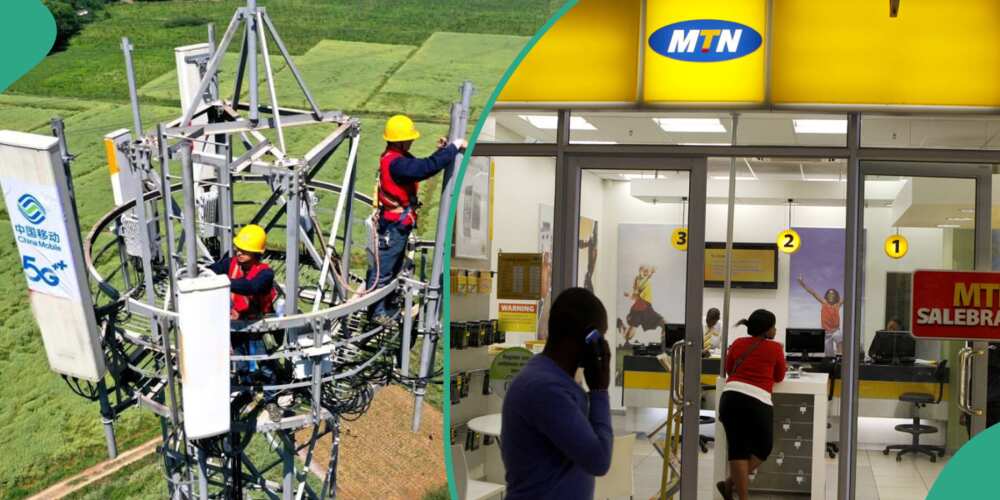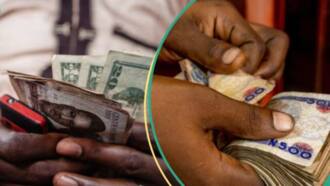Data Shows MTN, Airtel, Glo, Other Telcos Spent Over N429 Billion on Diesel in 2023
- A breakdown of how much Nigerian telecommunication sector players spend on diesel has been provided
- Data from the NBS shows that the cost of filling a litre of diesel increased by 37.76% as of the end of December 2023
- In response to rising diesel prices, telecom operators want the federal government to accept a tariff review
PAY ATTENTION: The 2024 Business Leaders Awards Present Entrepreneurs that Change Nigeria for the Better. Check out their Stories!
Nigeria's telecommunication companies' cost of powering communication base stations increased significantly amid the rising cost of diesel in 2023.
Analysis by Legit.ng shows that telecommunication companies spent about N429.43 billion buying diesel to fuel their base stations across the country.

Source: UGC
The amount spent is a 34% increase when compared to the N319.11bn they spent in 2022.
The rising expenses on power base stations reflect the 291% increase in diesel prices, as one litre rose from N828.82 in January 2023 to N1126.69 in December 2023, as shown by NBS data.

Read also
Good news: CBN slashes Nigeria Customs import duty exchange rate for first time in 8 months
PAY ATTENTION: Сheck out news that is picked exactly for YOU ➡️ find the “Recommended for you” block on the home page and enjoy!
How telcos spent over N400bn
Industry data show that mobile telecommunication operators use an average of 40 million litres of diesel per month to power telecom sites.
According to NBS data the average retail price of diesel at January was N828.82 per litre, this means telecos paid incurred expenses of N33.15 billion.
This was followed by a spending of N33.48 billion in February at a rate of N836.91 per litre.
March witnessed an expenditure of N33.63 billion, with diesel prices escalating to N840.81 per litre. In April, the spending amounted to N33.69 billion at a rate of N842.25 per litre.
The trend continued in May, with telcos disbursing N33.77 billion at a rate of N844.28 per litre. June saw an expenditure of N32.63 billion at N815.83 per litre, followed by N31.78 billion in July at N794.48 per litre.

Read also
CBN sets new customs exchange rate at over N1,500 as naira hits record low against US dollar
August recorded spending of N34.17 billion at a rate of N854.32 per litre, while September saw an outlay of N35.63 billion at N890.80 per litre. October witnessed a substantial increase, with expenses totalling N40.19 billion at a rate of N1004.98 per litre.
In November, telecom operators spent N42.22 billion, and in December, the expenditure rose to N45.07 billion at N1055.57 and N1126.69 per litre, respectively.
| Month | Average Diesel price | Telcos total expenses |
| January | N828.82 | N33.15 billion |
| February | N836.91 | N33.48 billion |
| March | N840.81 | N33.63 billion |
| April | N842.25 | N33.69 billion |
| May | N844.28 | N33.77 billion |
| June | N815.83 | N32.63 billion |
| July | N794.48 | N31.78 billion |
| August | N854.32 | N34.17 billion |
| September | N890.80 | N35.63 billion |
| October | N1004.98 | N40.19 billion |
| November | N1055.57 | N42.22 billion |
| December | N1126.69 | N45.07 billion |
High diesel cost impact on business
Chinoso Eze, an energy expert, lamented the high cost of diesel and its impact on doing business in Nigeria.

Read also
FX market sees surge in turnover as naira appreciates from N1,534 per dollar in official market
His words:
"It is increasingly difficult to do business in Nigeria, if the telcos are spending that much, imagine what small business owners are going through.
“I have no idea what sort of business will be conducted as a result of the increase in diesel prices. it is becoming unsustainable to do business in Nigeria.
"I won't be surprised if the telcos decides to adjust their data and call rates anytime soon."
How FG can reduce petrol cost
Meanwhile, Legit.ng reported that oil marketers proposed that the incorporation of ethanol into petrol could considerably reduce the price, potentially decreasing it by N49 per litre.
This proposal stems from the scarcity challenges and the resurgence of prolonged queues in different parts of the country.
Interestingly, this suggestion aligns with the concerns voiced by oil marketers about a possible upswing in fuel prices reaching N800 per litre in the upcoming weeks.
PAY ATTENTION: Stay Informed and follow us on Google News!
Source: Legit.ng
